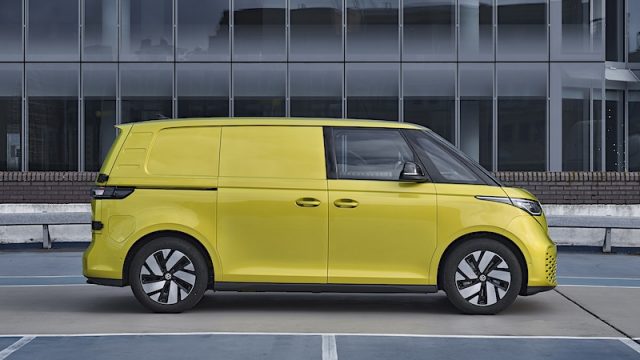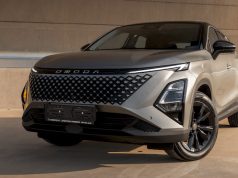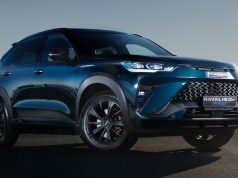In a significant shift, British van drivers are increasingly considering electric vehicles (EVs) as more cost-effective alternatives to traditional petrol or diesel vans. By going electric, South African fleet operators can reap similar rewards.
According to a study conducted for Volkswagen Commercial Vehicles UK by OnePoll, more than half of commercial drivers now believe that operating an electric van would be more financially viable compared to its conventional counterparts.
Confidence in EVs
The study, which surveyed 1 000 UK van drivers in December 2023, also revealed that over two-thirds of respondents expressed confidence that EVs would suit their business needs and daily operations. This shift in perception comes at a time when businesses face constant pressure to reduce their carbon footprint and operating costs.

Despite some lingering concerns, such as charging infrastructure and range anxiety, the survey highlighted a growing acknowledgment of the benefits associated with electric vans. Nearly three-quarters of van drivers no longer consider reliability to be a significant barrier to adopting EVs, indicating a shift towards greater acceptance of electric mobility solutions.
Scrappage scheme
One initiative aiding this transition is the UK’s ULEZ scrappage scheme, which provides financial incentives of up to £9 500 (R220 000) to eligible businesses in London to replace their internal combustion engine vans with fully-electric models. This incentive, coupled with the evolving landscape of electric vehicle technology, is driving interest and investment in electric transportation solutions.
Craig Cavanagh, Fleet Manager at Volkswagen Commercial Vehicles UK, noted, “Van drivers are recognising the benefits [of electric vans], not only from a sustainability point of view, but also from the perspective of being more cost-effective than petrol and diesel models.”
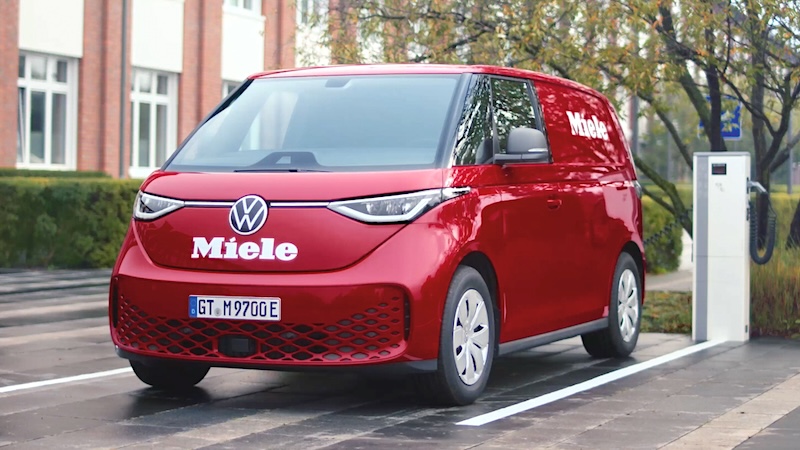
Volkswagen Commercial Vehicles says it is ready to meet this demand with its first factory-built, all-electric van, the ID. Buzz Cargo (pictured above). With a 77 kWh lithium-ion battery, it has an all-electric range of up to 408 km. Volkswagen South Africa has not announced any plans to introduce the ID. Buzz Cargo locally.
Commercial EVs in South Africa
This does not mean Mzansi’s businesses are left high and dry when it comes to the availability of electric vans and charge points, even though the national government provides no EV incentives to local enterprises.
Charging infrastructure
GridCars, the largest provider of EV charging infrastructure in the country, is installing charge points that are open to private and commercial EVs, as well as on-site infrastructure for companies that run fleets.
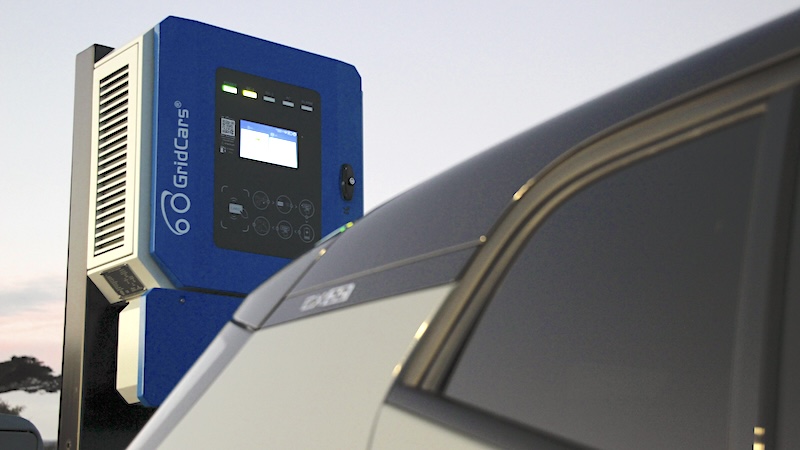
According to Winstone Jordaan, Managing Director of GridCars, any business running commercial vans can save around 20 to 30 percent on their fuel bill by using EVs instead of petrol or diesel vans. “This is in spite of electric vehicles’ higher purchase prices,” Jordaan adds.
So, where can fleet managers acquire electric delivery vehicles?
Available vehicles
At least three companies have taken the brave leap of bringing electric commercial vehicles to our shores. All of these products are from China, whose vehicles have begun to match or exceed some more established competitors’ products in terms of quality.
Maxus
Everlectric offers the (VW Caddy-sized) Maxus eDeliver 3 range of vans (image below) for leasing or purchase, as well as the Maxus T90 EV double cab.
Everlectric’s most prominent customer is the Woolworths supermarket chain, who runs a small fleet of eDeliver 3 vans. The eDeliver 3 offers a cargo volume of 4,8 m³, a payload of 945 kg, and a range of 250 km. Its battery has a 50,2 kWh capacity, can charge from 5 to 80 percent in 45 minutes at a DC fast charger.
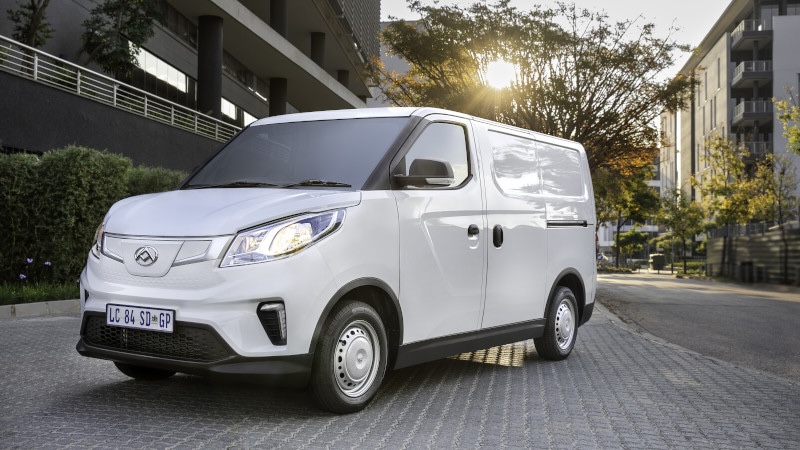
DFSK and JAC
DFSK is another Chinese brand that has been operating in South Africa for a couple of years, thanks to Enviro Automotive. The company has recently announced it will introduce DFSK’s EC75 van (below), which will fill an important niche.
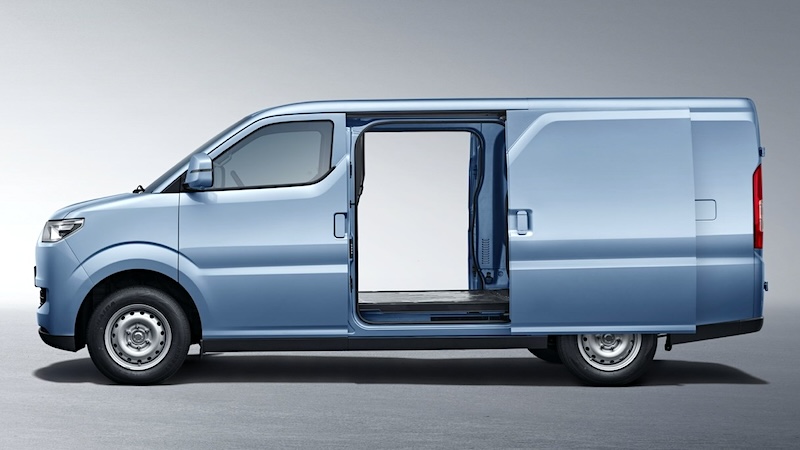
It is roughly of a similar size than the Hyundai Staria and Mercedes-Benz Vito, and joins the smaller DFSK EC35 van and EC31 pickups already offered locally. Enviro Automotive has other vehicles up its sleeve too, including a passenger car with a top speed of around 100 km/h.
Aeversa, yet another EV leasing pioneer, supplies online retailer Takealot with JAC N75 EV trucks.
Mercedes-Benz eSprinter
Of the more established manufacturers, Mercedes-Benz is likely to lead the pack when it launches the eSprinter (images below) in South Africa in the third quarter of 2024.
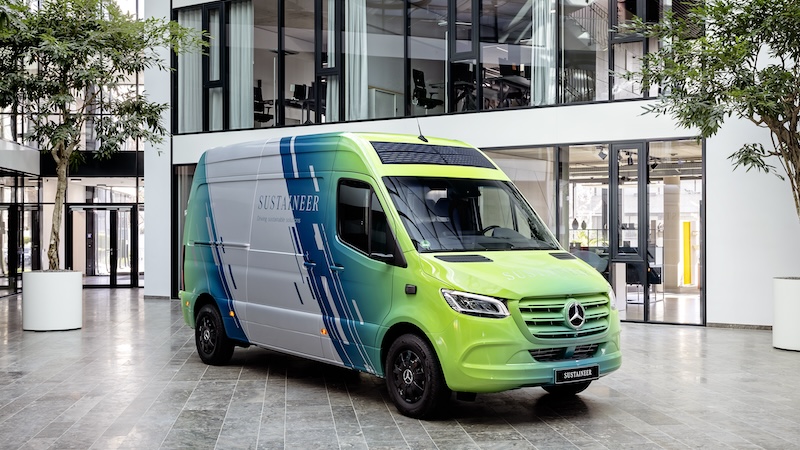
The eSprinter is one size up from the Vito, meaning it offers roughly the same cargo capacity as the diesel-powered VW Crafter and Iveco Daily.
Two body styles and lengths, and three battery capacities will be available. In North America, the eSprinter is available with a 113 kWh battery (usable capacity), while European markets also receive a battery of 56 kWh as well as 81 kWh. Battery capacities and retail prices for South Africa are yet to be released by Mercedes-Benz.

The tortoise and the hare
As local businesses begin to recognise the economic benefits of electric vans for various commercial applications, the shift towards electrification is poised to accelerate. After an early start, vehicles from Chinese brands are enjoying a comfortable lead. To catch up, the legacy vehicle brands will have to perform miracles, while customers stand to benefit from the manufacturers’ price- and product wars.


